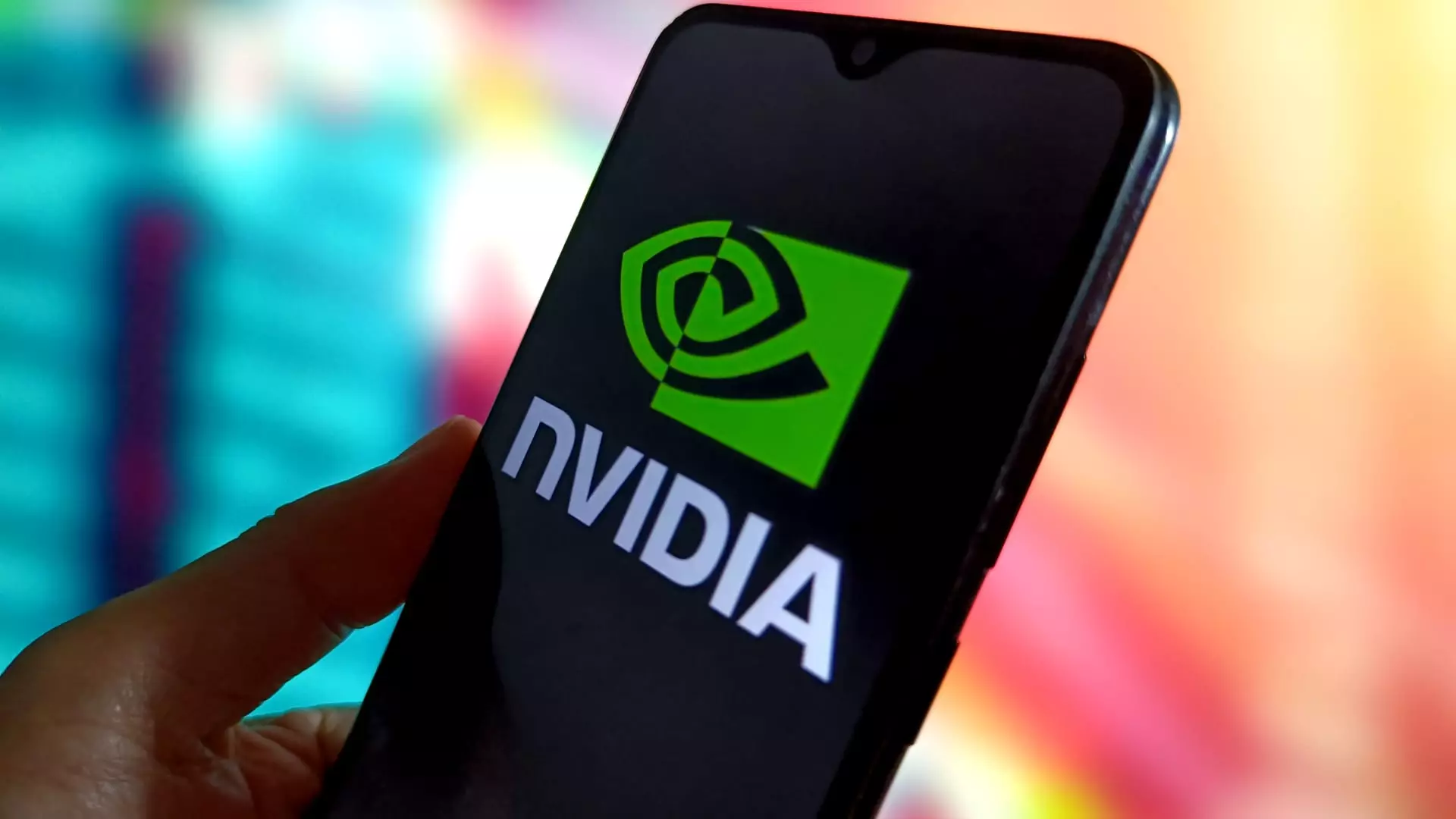In the ever-evolving landscape of technology and investment, the recent turmoil surrounding Nvidia has sparked significant interest and analysis—not only regarding the company’s future but also the growing influence of retail investors in the stock market. The stunning $600 billion market value loss caused by the emergence of a Chinese artificial intelligence (AI) model has raised numerous questions about market dynamics, investor behavior, and the overall state of the AI sector.
On a recent Monday that would be recorded in the history books, retail investors displayed remarkable resolve and conviction by pouring over $562 million into Nvidia shares. This staggering influx occurred even as institutional investors hastily exited their positions, indicating a starkly contrasting sentiment between average traders and market professionals. This historic buy-in epitomizes the current trend of individual investors stepping up at critical moments, diverging from traditional Wall Street entities that typically guide the market narrative.
As the stock plummeted approximately 17%, marking Nvidia’s most significant one-day loss since the onset of the Covid-19 pandemic, the backdrop of this rash selloff was a concerning revelation about a new AI model from the Chinese startup DeepSeek. With this development, fears emerged that the United States might be losing its foothold in the AI race, drawing parallels to the “Sputnik moment” during the early days of the Space Race. Nevertheless, the resilience shown by retail investors not only highlights their growing confidence but also their willingness to support companies they believe in.
The introduction of DeepSeek’s AI model, which purportedly surpassed the performance of American contenders like OpenAI, ignited apprehension about the U.S. strategic investments into AI technologies and their supporting infrastructures. This situation raised significant concerns and skepticism among tech investors and industry analysts, with many questioning whether the previous investments would yield long-term advantages. The urgency of government-backed initiatives, such as President Trump’s recently announced multi-billion dollar AI project known as Stargate, underscored the sense of competition now facing U.S. companies.
Nvidia, during a conversation with CNBC, acknowledged the impressive capabilities of DeepSeek’s offerings. By recognizing advancements made by global competitors, the company demonstrated an understanding of the collaborative nature of technological progress, albeit under intense pressure at a time when national pride and global competitiveness were at stake.
While the immense market cap of Nvidia—hovering around $3 trillion—differentiates it from smaller cap stocks that retail investors have previously turned into “meme stocks,” the community aspect of investing has persisted. The heightened activity in online forums like WallStreetBets showcases a collective sentiment among retail investors, eager to rally around a company they trust. The increased mentions of Nvidia—surging by over 175% on Reddit—highlighted an emerging culture of social media influence on trading behavior, reminiscent of trends previously seen during the pandemic’s meme stock frenzy.
This connection between retail investors not only fosters a sense of belonging within the larger financial ecosystem but also allows for the sharing of strategies and insights, creating a quasi-democratization of investment approaches. This camaraderie is crucial, particularly in circumstances where institutional investors dictate rapid sell-offs based on perceived risks.
As the AI battle intensifies and the dynamics of institutional and retail investors continue to evolve, it is essential to analyze the potential implications for future investment strategies. The contrasting behaviors witnessed during Nvidia’s recent dip may suggest that retail investors prioritize long-term trust in technological innovators over short-term market corrections. The willingness to buy into Nvidia at a low point raises queries about market timing, investor education, and the potential for retail investors to develop more sophisticated trading approaches.
Ultimately, the outcomes of these developments will hinge upon how both institutional players and individual investors navigate the complexities of the tech sector, particularly in light of fierce competition from overseas. With a renewed focus on innovation and community-driven investment decisions, the future promises to be as unpredictable as it is promising, with stories of resilience like that shown by Nvidia’s retail supporters becoming increasingly commonplace.

